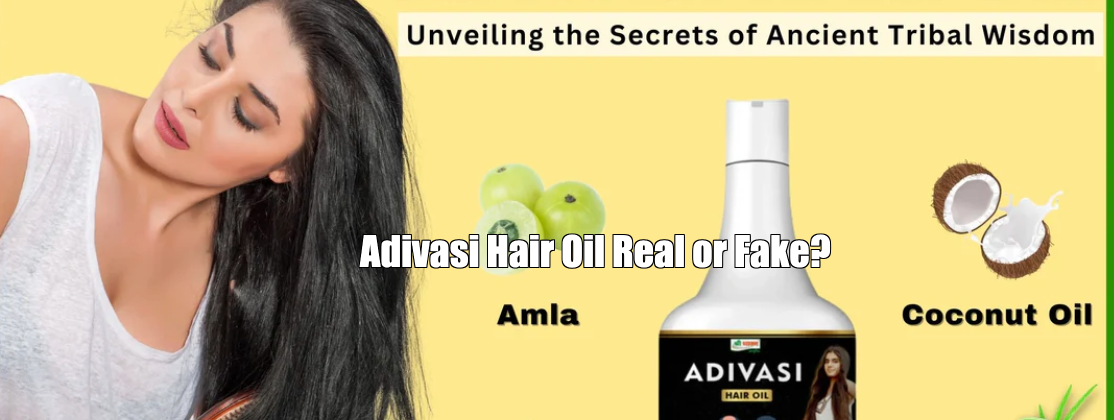
Adivasi Hair Oil Real or Fake?
Summary
Adivasi hair oil is both Real and Fake, depending on where you buy it. Some sellers offer a real herbal blend made by tribal communities that helps with hair care. But many others sell fake versions with no real ingredients or proof. It can’t magically grow hair on bald heads. So, while some bottles are real, many are fake—be careful before you trust what you see online or on social media.
Adivasi Hair Oil exploded on social media in India in 2024 as a “tribal” key for turning around baldness, stopping hair fall and even “growing brand-new hair on hairless heads.” Suppliers– often participants of the Hakki Pikki neighborhood in Karnataka– sell it from roadside stalls or WhatsApp, quoting rates of 1,000- 2,000 a bottle and claiming greater than 100 natural herbs. Influencers from Elvish Yadav to Bharti Singh have aided it go viral, but skin specialists point out that the exact recipe is never printed on the label and that there is no released scientific test behind the claims
indiatoday.in
.
How to Make Money (and Why So Many Are Trying).
Since the item is unregulated, any individual can purchase it wholesale, fill unbranded PET bottles, stick on a hologram sticker that says “Original,” and resell it online with fat margins. TikTok and Instagram associates earn as much as 30 percent per container just by uploading a before-and-after reel. Some roadside sellers informed The Print they decant 500 mL right into smaller sized containers to double profits, fulfilling everyday orders on WhatsApp from throughout India.
theprint.in
. For hustlers, consequently, “adivasi hair oil” is not a solitary manufacturing facility brand but a high-margin home industry– one reason the market is awash with copies.
Is Adivasi Hair Oil Real or Fake?
This is the million-rupee question typed into Google thousands of times a day: “adivasi hair oil is Real or Fake?” Let’s look at both sides.
| Claim | Evidence for “Real” | Evidence for “Fake” |
|---|---|---|
| 100-plus Ayurvedic herbs nourish the scalp | Individual herbs such as amla and neem are known antioxidants and antimicrobials | No batch lists a full ingredient panel; quantities are unknown |
| Stops hair fall within a week | Warm-oil scalp massage itself can reduce breakage by lubricating shafts | Dermatologists say breakage ≠ regrowing follicles; oil can’t reverse androgenetic baldness. |
| FSSAI licence printed on some bottles | A Meesho listing shows an FSSAI number 87497937497569 | India’s regulator has not issued an Ayush licence to any “Adivasi Hair Oil” brand and sellers rotate licence numbers |
| Celebrity testimonials prove it works | Influencer videos generate social proof | Most “reviews” are promos; India Today found none of the celebs had completed a long-term trial. |
Some Signs That Your Bottle Might Be Real
- Transparent ingredient list. Few vendors provide it, but a genuinely formulated herbal oil should list each herb and percentage.
- Batch and manufacturing address. A legitimate cottage producer still prints a traceable address and phone number.
- Sealed cap and intact hologram. Counterfeits often skip the shrink-wrap to save cost.
- Mild, earthy aroma. Pure cold-pressed oils smell subtle; a strong synthetic perfume can be a red flag.
Red Flags Screaming “Fake”
- Miracle claims like “Grow hair on shiny scalp in 10 days.” Doctors warn such promises violate basic biology; dead follicles cannot resurrect without medical intervention.
- No expiry date. Genuine herbal oils oxidise; a five-year shelf life printed in bold is suspicious.
- Multiple spellings—Adiwashi, Adivashi—on the same label show sloppy rebranding.
- Pushy WhatsApp marketing with “final stock” countdowns is classic shady-seller psychology.
What Doctors and Scientists Say About It
Dermatologist Dr Ajara Hamid told India Today that male-pattern baldness is driven by dihydrotestosterone and genetics; topical oils alone cannot reverse it. Dr Ruben Passi adds that daily oiling may even worsen dandruff, a common hair-loss trigger, because fungi thrive on excess scalp oilindiatoday.in. In short: conditioning? Yes. Curing baldness? No.
Real-World User Voices
An Amazon buyer wrote that the oil “smells nice but gave no visible change after three months”.
Redditors call it “the new snake-oil scam” and argue that genes, not magic oils, decide follicle fater.
A clinic blog brands the viral hype “the biggest scam of 2024,” blaming India’s lax cosmetics regulation.
Yet a minority swear by it. Traditional users who warm the oil, massage thoroughly, and leave it overnight report softer strands and reduced breakage—benefits any nourishing oil (coconut, sesame, argan) might deliver.
So, adivasi hair oil is real … or adivasi hair oil is fake?
The truthful but less click-baity answer: it’s both.
- Real—in the sense that some families in the Hakki Pikki community genuinely craft and sell an herbal blend passed down for decades. If you buy directly from them, you’ll likely receive an authentic herbal oil that conditions hair.
- Fake—because the internet turned that niche folk remedy into an unregulated gold rush. Copycats bottle cheaper base oils, splash a tribal logo on top, and flood marketplaces. Many consumers end up with these knock-offs and feel cheated.
Final Verdict
After weighing folk tradition, biochemical reality, user reviews and expert opinion, I feel comfortable saying: For conditioning existing hair, a well-made Adivasi blend can help. For curing baldness or “growing hair on a polished scalp,” those claims are Fake.
So next time you see an influencer flipping Rapunzel-length locks while shouting “adivasi hair oil is real,” remember to ask: Which Adivasi oil? What’s in it? Show me the licence. If the seller dodges those simple questions, politely step away—your wallet and your scalp will thank you.
